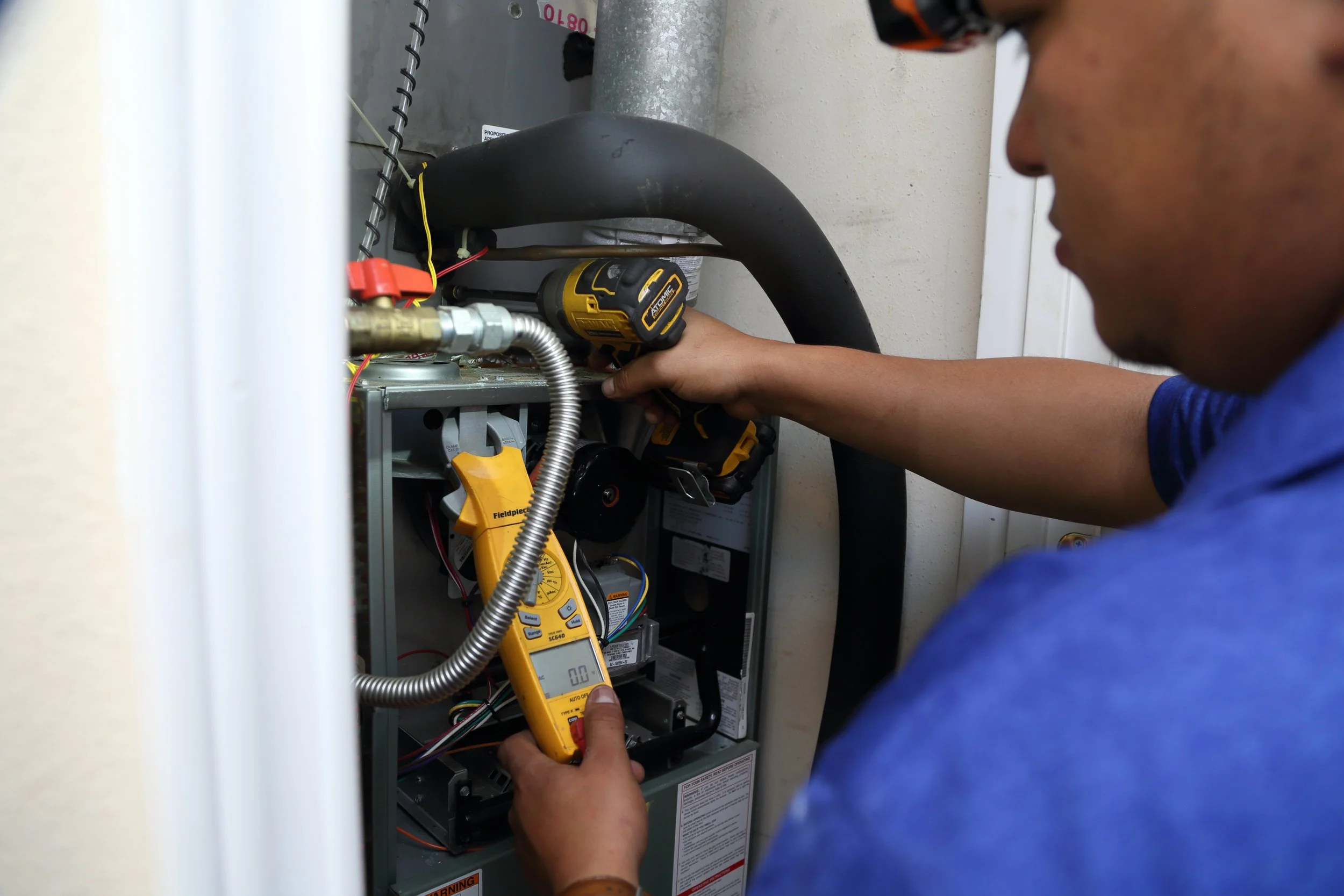What to Do with a Furnace in the Summer
Homeowners with an HVAC system should avoid shutting off the power supply to the furnace because it often shares electrical components with the air conditioning.
During spring and summer, a gas furnace may not be of much use. But when winter rolls around again, it needs to be in tip-top condition. Because of this, many homeowners consider turning their furnaces completely off in the summer. But is this the best course of action? Continue reading to determine what to do with a furnace in summer.
Deciding whether to turn the furnace off
Turning off a furnace over the warmer season can be a good idea. Furnaces with pilot lights continue to use gas if they are left on. In addition, a furnace has electrical components that continue draining power. Thus, leaving it on means more energy consumption and higher utility bills even when heating isn’t needed. A homeowner needs to determine if they can afford the additional cost.
Turning off the furnace over the summer
When the thermostat is turned to its lowest setting, there is an assumption that the furnace is off. But turning the thermostat doesn’t shut the furnace off completely but simply stops the electronic ignition. The electric supply and gas line needs to be off completely to turn off the furnace entirely. This guarantees that no energy will be wasted.
It’s not wise to turn off the system until the weather becomes consistently cool or cold. The pilot light should be turned off by ensuring the knob is off. Ensure the main gas supply is switched off as well. While switching the furnace off, be careful not to also shut off the gas supply to the stove and water heaters.
Those homeowners with an HVAC system should avoid shutting off the power supply to the furnace because it often shares electrical components with the air conditioning.
Best time to turn off a furnace
Even though it’s summer, the furnace may still be needed should the temperatures drop at night. But if a home is in an area with consistently warm temperatures throughout summer, the furnace can be safely turned off for energy saving.
Benefits associated with a turned-off furnace
When a furnace is off, lower utility bills can be expected. This is especially true if the local gas company does not charge a minimum monthly fee even when a furnace is not used. Turning off a furnace also saves natural resources.
Homeowners with older furnaces installed should turn them off over the summer. When the pilot light is left on, the heat produces moisture, causing humidity in the home. Furthermore, turning off the furnace eliminates the possibility of a house accidentally heating up if the thermostat is tampered with or malfunctions.
Issues with turning off a furnace
Turning off a furnace in summer means it needs to be turned back on when the cold season begins. This can be a challenge for some. If in doubt, it’s always good to enlist the services of professional technicians to assist with any furnace issue. Dirt and moisture can accumulate when a system is not used for a while. Professionals can assist with proper installation, maintenance, and repairs to avoid malfunctions or a freezing home when heating is needed most.
If you need experienced and trained technicians for furnace installation, furnace maintenance, furnace replacement, and furnace repair, contact Above and Beyond Air Conditioning & Heating at (210)794-9895. Emergency services are available 24/7.

